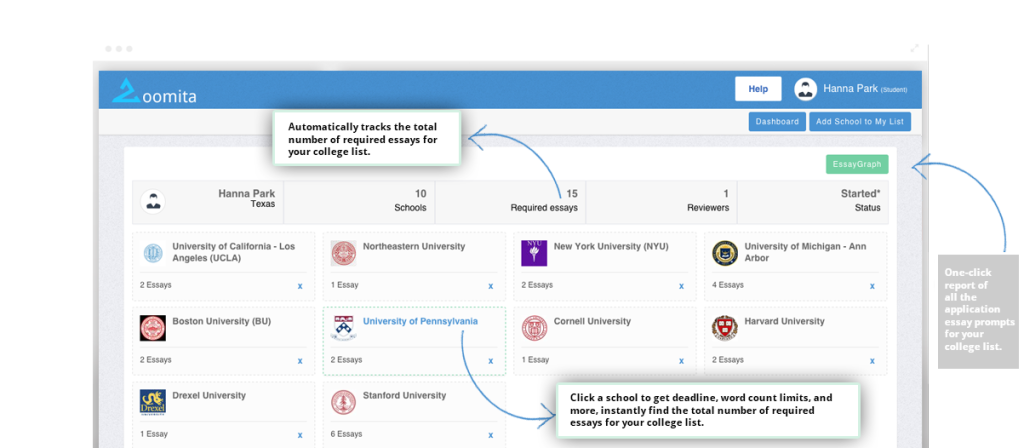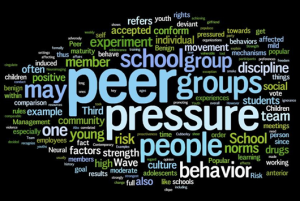 School has started for most high school students and for their parents. Yes, I said parents too. They go back to school and we become chauffeurs, coaches, ports in the storm, listening ears and punching bags. College prep adds a whole new level of frustration and stress to the four high school years. A typical day in the life of a college-bound parent might include:
School has started for most high school students and for their parents. Yes, I said parents too. They go back to school and we become chauffeurs, coaches, ports in the storm, listening ears and punching bags. College prep adds a whole new level of frustration and stress to the four high school years. A typical day in the life of a college-bound parent might include:
Reminding them to study for standardized tests
Every parent knows the importance of standardized tests. Most students revolt when it comes to studying for them. It’s a daily battle trying to get them to study or even look at vocabulary words. Those that do, reap the rewards. Those that don’t, settle for average scores. The hard part of this parenting issue is to find a motivation and use it.
Receiving a text message that the deadline for ____ is today, and they forgot
This will happen; more times than you care to count. With so many activities, responsibilities and deadlines related to college admissions, things are bound to fall through the cracks. Don’t always rescue them. Find a reminder system that works: text messaging, shared calendar apps, or a huge wall calendar in a place in the house that everyone can see.
Thinking they can’t leave for college soon enough
Battles will ensue. Doors will slam. Words will fly. You will find yourself looking forward to the day when none of these things are a part of your life. It might be only for an instant, but it will happen.
Wishing you could stop time and keep them home forever
Just as quickly as you wish they were gone, you will dread the day you drop them off for college. You can’t prepare for that moment, but you can cherish every moment of their high school years; even the bad ones. Once they leave, the house will be quiet again and you will miss those slamming doors.
Encouraging (or nagging) them to search for scholarships
During all four years of high school, scholarship searching should be a part of your student’s life. It’s boring, monotonous and not fun. It ranks right up there with studying and they will avoid it like the plague. The only way you can motivate them is to make them understand that scholarship searching is related to being able to attend college. Money = opportunity and their job while in high school is to search for scholarships.
Sifting through the papers in their backpack (or on their floor) looking for an application or form
This is not an adequate filing system for college material. This is the way important papers are lost and deadlines are missed. At the start of high school, establish a “college landing zone” for everything college related. Once your student knows to make this a priority, you should be able to minimize those treasure hunts.
Stressing over college choice, college visits, test prep and just about any other college prep task
Stress will be your middle name for the next four years. You can minimize the stress by staying organized, planning ahead, and communicating with one another.
Having mounds and mounds of questions and needing answers
Questions will arise during college prep and you will need answers. Lucky for you, there are many experts willing to help. Look on social media, ask your high school counselor or even hire and independent counselor. Tonight’s Back-to-School panel on #CampusChat should answer some of your questions and if you have more, contact the experts on Twitter after the chat. They will be happy to help.
This last one came from one of my readers (thanks Renee!)
Monitoring your student’s classes to make sure that they are meeting college admissions requirements
Does your son need to retake a class? Does your daughter need an additional math class? Don’t rely on counselors to keep track of your child’s progress. Parents and students have to monitor their own progress toward college and not be afraid to ask questions and request changes when things don’t look right.
Read Wendy’s post: College Prep Back to School Tips
+++++++++++++++++++++++
Wednesday’s child may be full of woe but Wednesday’s Parent can substitute action for anxiety. Each Wednesday Wendy and I will provide parent tips to get and keep your student on the college track. It’s never too late or too early to start!
The bonus is that tonight Wendy and I will host Twitter chat #CampusChat at 9pm ET/6pm PT. Our Back-to-School Panel of experts will be giving tips to parents about all phases of college prep.
Wednesday’s Parent will give twice the info and double the blog posts on critical parenting issues by clicking on the link at the end of the article from parentingforcollege to pocsmom.com and vice versa.








 Absenteeism is one of the major causes of stress in college students. Missing classes might seem like a fun idea at the time but only results in you having to look for more time to play catch up with your peers as the semester ends. This is mostly seen when you will be running up and down in an attempt to seek out your class lecturers to explain more on topics that you missed. Truancy also leads to borrowing of notes at the last minute takes up more of your time, as you are not familiar with your peer’s handwriting or shortened notes.
Absenteeism is one of the major causes of stress in college students. Missing classes might seem like a fun idea at the time but only results in you having to look for more time to play catch up with your peers as the semester ends. This is mostly seen when you will be running up and down in an attempt to seek out your class lecturers to explain more on topics that you missed. Truancy also leads to borrowing of notes at the last minute takes up more of your time, as you are not familiar with your peer’s handwriting or shortened notes. Take Control of your Time
Take Control of your Time



